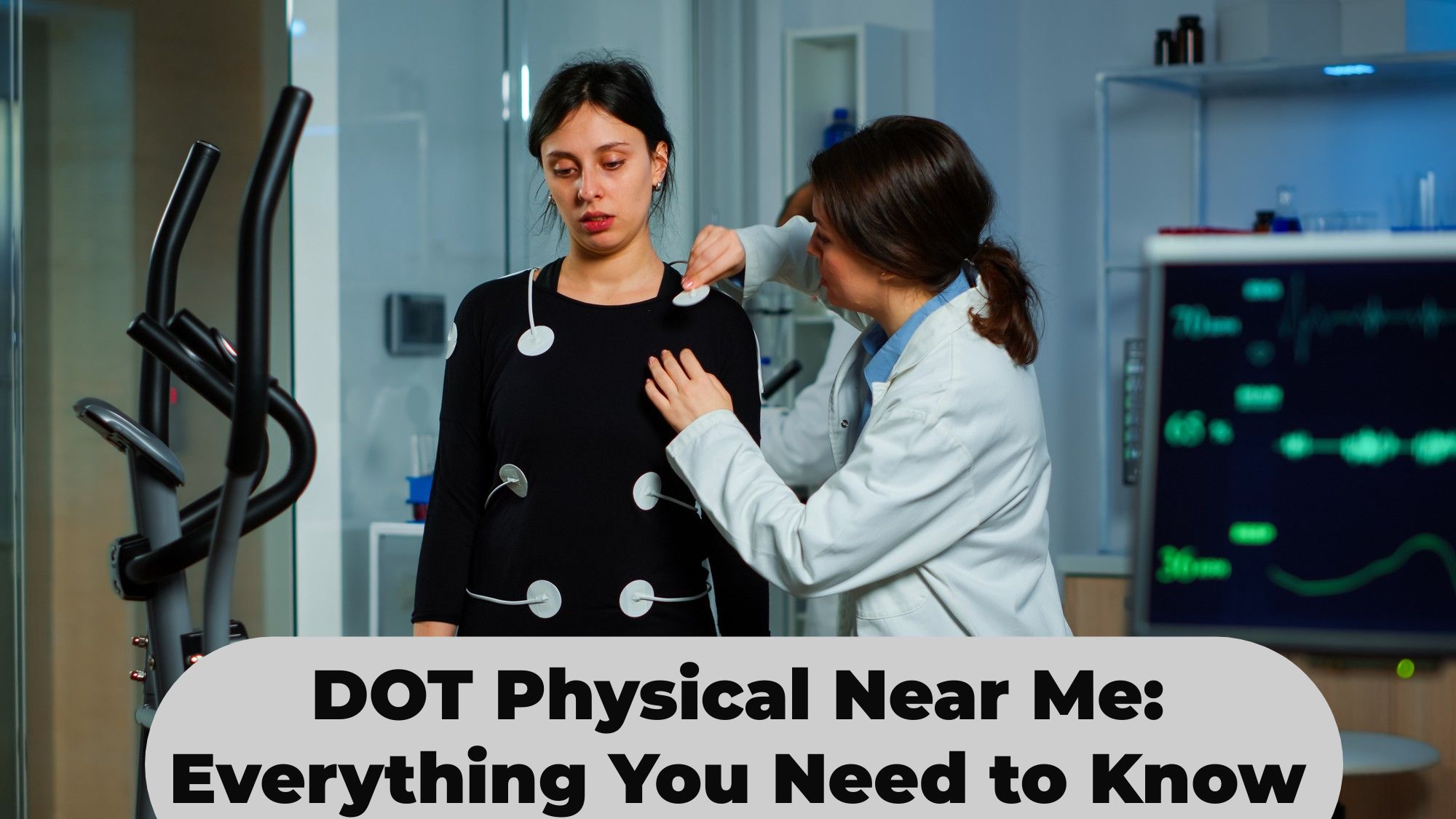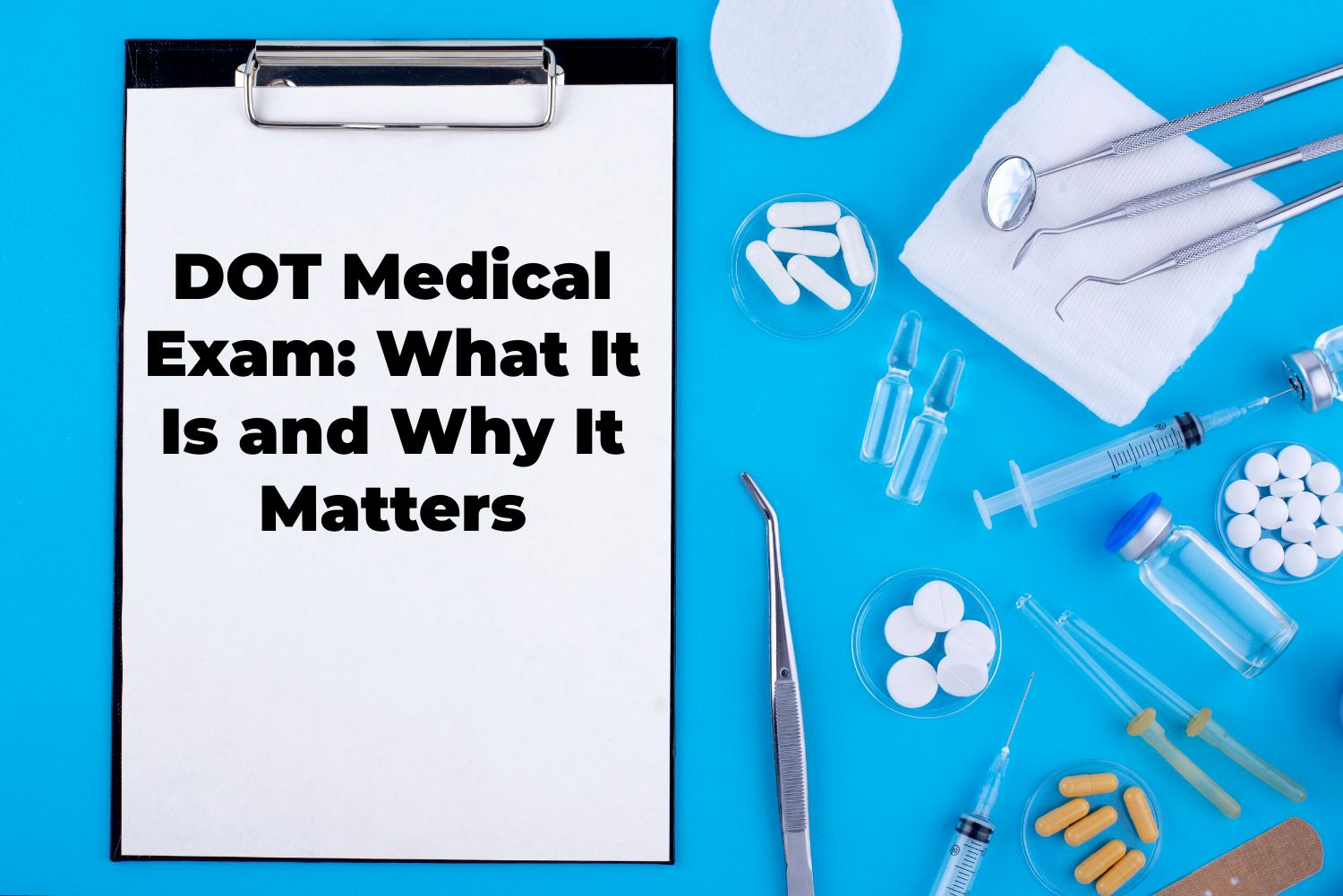CDL Physical Near You: All You Need to Know about DOT Testing and Requirements
Last Updated on July 4, 2023 by Lily
CDL physicals play a vital role in ensuring the safety and well-being of commercial drivers. As a commercial driver, it is crucial to meet the requirements set by the Department of Transportation (DOT) and undergo regular physical examinations. In this comprehensive guide, we will delve into the details of CDL physicals, DOT testing, and provide valuable information on finding a CDL physical near you.
What is a CDL Physical?
A CDL physical, also known as a Department of Transportation (DOT) physical, is a medical examination conducted to assess a commercial driver’s physical and mental fitness. The purpose of this examination is to ensure that commercial drivers are capable of safely operating commercial vehicles.
CDL Physical Requirements:
To obtain or renew a Commercial Driver’s License (CDL), drivers are required to meet specific medical standards outlined by the DOT. These requirements include:
General Health:
Drivers must be in good overall health and have no medical conditions that could impair their ability to drive safely.
Vision:
Commercial drivers must have a minimum visual acuity of 20/40 in each eye, with or without corrective lenses. They should also have a 70-degree field of vision in the horizontal meridian.
Hearing:
Drivers must be able to perceive a forced whisper at a distance of five feet or less, with or without hearing aids.
Blood Pressure:
The DOT sets specific guidelines for blood pressure, requiring drivers to have a reading below 140/90 mmHg. Drivers with hypertension may still qualify if their condition is well-controlled.
Diabetes:
Drivers with diabetes may qualify for a CDL if their condition is well-managed through medication or insulin injections.
What is a DOT Test?
A DOT test refers to the mandatory drug and alcohol testing that commercial drivers are subjected to as part of the DOT’s safety regulations. The DOT test aims to ensure that drivers are not impaired by drugs or alcohol while on duty.
DOT Testing Near Me:
Finding a DOT testing facility near you is crucial for commercial drivers. To locate a DOT testing center in your area, you can use online directories, search engines, or consult your employer or local Department of Motor Vehicles (DMV) office.
What is a DOT Medical Certification?
A DOT Medical Certification is a document issued to commercial drivers who have successfully passed their CDL physical and met the DOT’s medical standards. It serves as proof that the driver is physically fit to operate a commercial vehicle.
Benefits of DOT Medical Certification:
Compliance: Holding a valid DOT Medical Certification ensures compliance with DOT regulations and helps drivers avoid penalties or legal issues.
Employment Opportunities: Many employers require commercial drivers to have a valid DOT Medical Certification as a prerequisite for employment.
Road Safety: By enforcing strict medical standards, DOT Medical Certification contributes to safer roads and reduces the risk of accidents caused by impaired or unfit drivers.
Finding CDL Physicals Near You:
As a commercial driver, it is essential to locate a reliable and convenient CDL physical facility near you. Here are some effective ways to find CDL physicals in your area:
Online Directories:
Several online directories specialize in listing medical professionals who offer CDL physicals. Websites like DOTPhysicalsProviders.com and National Registry of Certified Medical Examiners (NRCME) allow you to search for certified medical examiners by location. These directories provide detailed information about the medical examiner’s qualifications, contact details, and patient reviews, helping you make an informed decision.
Local Medical Providers:
Contact local medical clinics, urgent care centers, and occupational health clinics to inquire about their CDL physical services. Many healthcare facilities have certified medical examiners who are authorized to conduct CDL physicals. Make sure to ask about their availability, scheduling process, and any specific requirements they may have.
Employer Resources:
If you are employed by a commercial driving company, your employer can be a valuable resource for finding CDL physicals near you. They may have a list of recommended medical providers or partnerships with specific clinics or physicians who specialize in CDL physicals. Reach out to your company’s human resources or safety department to obtain information and guidance in finding a suitable facility.
Department of Motor Vehicles (DMV):
Local DMV offices often have information or resources available for commercial drivers. They may be able to provide you with a list of approved medical examiners or direct you to local resources for CDL physicals. Contact your nearest DMV office or check their website for any available resources or guidelines.
Recommendations and Referrals:
Seek recommendations from fellow commercial drivers, friends, or colleagues who have recently undergone CDL physicals. Their firsthand experiences can provide valuable insights into reputable medical examiners and facilities in your area. Additionally, consider joining online forums or driver communities where you can ask for recommendations and connect with other drivers who can share their experiences and advice.
When selecting a CDL physical facility, consider factors such as convenience, reputation, cost, and the examiner’s knowledge and experience in conducting CDL physicals. It is crucial to ensure that the medical examiner is certified by the National Registry of Certified Medical Examiners (NRCME) to perform DOT physical examinations.
Conclusion:
Commercial drivers must prioritize their health and safety by undergoing CDL physicals and adhering to DOT regulations. This comprehensive guide has provided valuable information on CDL physicals, DOT testing, and locating CDL physicals near you. By understanding and fulfilling the requirements set by the DOT, commercial drivers can maintain their licenses, ensure their well-being, and contribute to safer roads.



